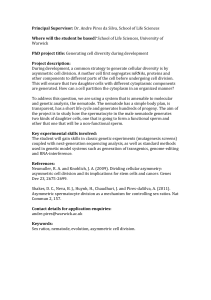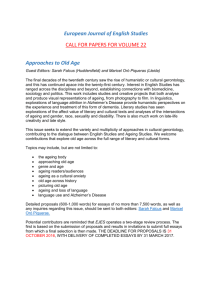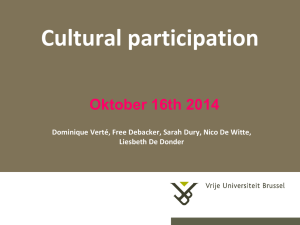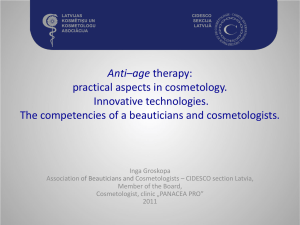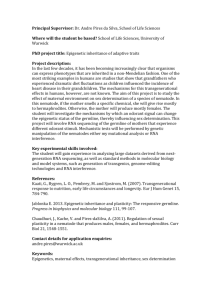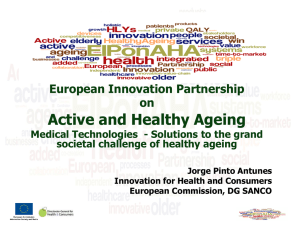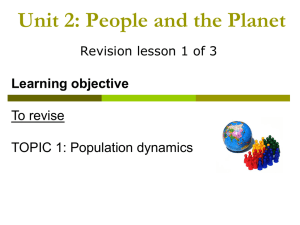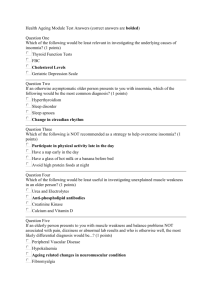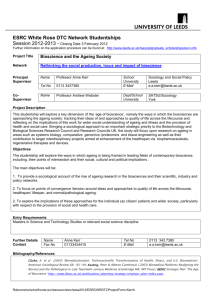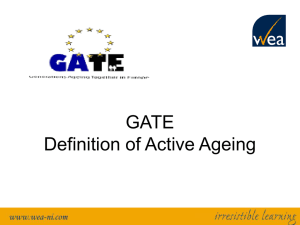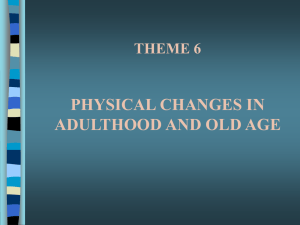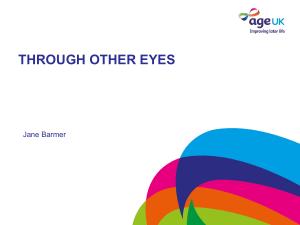PhD project proposal template 2012-13
advertisement
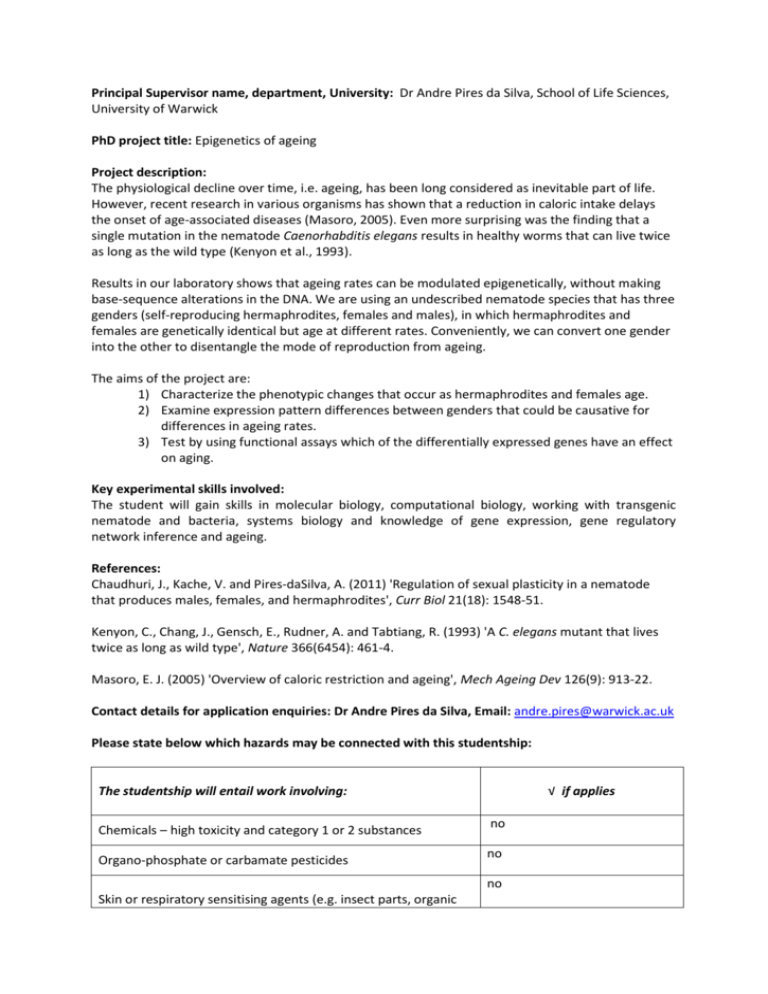
Principal Supervisor name, department, University: Dr Andre Pires da Silva, School of Life Sciences, University of Warwick PhD project title: Epigenetics of ageing Project description: The physiological decline over time, i.e. ageing, has been long considered as inevitable part of life. However, recent research in various organisms has shown that a reduction in caloric intake delays the onset of age-associated diseases (Masoro, 2005). Even more surprising was the finding that a single mutation in the nematode Caenorhabditis elegans results in healthy worms that can live twice as long as the wild type (Kenyon et al., 1993). Results in our laboratory shows that ageing rates can be modulated epigenetically, without making base-sequence alterations in the DNA. We are using an undescribed nematode species that has three genders (self-reproducing hermaphrodites, females and males), in which hermaphrodites and females are genetically identical but age at different rates. Conveniently, we can convert one gender into the other to disentangle the mode of reproduction from ageing. The aims of the project are: 1) Characterize the phenotypic changes that occur as hermaphrodites and females age. 2) Examine expression pattern differences between genders that could be causative for differences in ageing rates. 3) Test by using functional assays which of the differentially expressed genes have an effect on aging. Key experimental skills involved: The student will gain skills in molecular biology, computational biology, working with transgenic nematode and bacteria, systems biology and knowledge of gene expression, gene regulatory network inference and ageing. References: Chaudhuri, J., Kache, V. and Pires-daSilva, A. (2011) 'Regulation of sexual plasticity in a nematode that produces males, females, and hermaphrodites', Curr Biol 21(18): 1548-51. Kenyon, C., Chang, J., Gensch, E., Rudner, A. and Tabtiang, R. (1993) 'A C. elegans mutant that lives twice as long as wild type', Nature 366(6454): 461-4. Masoro, E. J. (2005) 'Overview of caloric restriction and ageing', Mech Ageing Dev 126(9): 913-22. Contact details for application enquiries: Dr Andre Pires da Silva, Email: andre.pires@warwick.ac.uk Please state below which hazards may be connected with this studentship: The studentship will entail work involving: Chemicals – high toxicity and category 1 or 2 substances Organo-phosphate or carbamate pesticides √ if applies no no no Skin or respiratory sensitising agents (e.g. insect parts, organic dusts from animals, spores, pollen, antibiotics, fibres, chemical sensitisers, wood dust etc) Radionuclides Significant manual handling Mechanical repetition where the frequency and duration are significant Working in areas where there are temperature extremes Driving vehicles (tractors, fork lifts, ATVs etc) Crop planting, harvesting, recording or grading Working in close proximity to bees or other stinging insects Working at height [>2 m] (using various types of access equipment) Working with noisy or vibrating equipment Working at night (between 11.00pm and 6.00am) Food handling no no no no no no no no no no no no Other significant hazards (specify)
